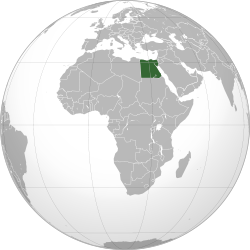Watershed Moment For Religious Teaching In Egypt – OpEd
By CGNews
By Joseph Mayton
In a noteworthy development that has been largely unreported by foreign media, Egypt’s Ministry of Education announced that a new human rights class for 11th grade students will use portions of the Bible in its curriculum and will discuss non-Muslim rights in Islam.
Traditional religion courses have existed for decades, which split Christians and Muslims into two groups to learn about their respective faiths. The goal of the new human rights class, the ministry said, is to “educate students on citizenship”, and it will be taught to all 11th graders as part of their new human rights studies coursework, beginning this academic year.

While traditional religion courses will remain split, the human rights class offers a new move towards greater inclusivity. The course will examine human rights and citizenship, including what it means to be Egyptian, which should help bring Muslim and Christian students together, a departure from the decades-old method of separating them when teaching religion.
The course will use Christian and Muslim precepts of human rights to discuss human rights within the Egyptian context. It is ambitious, but could be the beginning of something new and great for the country, in which each faith is given credibility within the classroom setting.
A report in Egypt’s Al-Wafd newspaper mentioned in late September that the second chapter of the textbook for the “Patriot Studies” class, as it is called, will include Christian principles, which follows the first chapter about non-Muslim rights in Islam.
With this course, the government is moving towards creating more inclusive educational environments. Learning about Christian and Muslim principles as they learn about citizenship, students in Egypt will hopefully discover that each faith is vital and important to the future of the country.
In another step to avoid divisions, the cover of the textbook features a picture from the January 2011 uprising with a cross and crescent intermingled, a sign of unity between the two religions in Egypt.
“The textbook promotes equal citizenship and the building of a diverse political system that will represent all of society,” the ministry said.
With a growing interest in human rights education in Egypt since the revolution, this textbook is a first step towards teaching Muslim students about other faiths. 11th grade teacher Salma Mahmoud believes that this is the “greatest moment for Egyptian education”.
For teachers like Mahmoud it is a chance to develop a dialogue between Christian and Muslim students. She says that while simply having a chapter discussing Christian principles in the textbook is important for the future of Egypt, its importance goes beyond the text.
“What we can have are debates, questions and open discussions about each others’ beliefs in a forum that is not contentious and where students don’t feel alienated. At the end of the day, many of these students’ brothers, friends and relatives were in the streets during the 18 days and fought and died for Egypt, so they can learn that we all have the same desires,” she said of the new human rights class.
And she is right. The advent of inclusive education could be a moment for all Egyptians to finally begin to overcome the notion that what separates them is religion. By learning each about other’s faith in the context of citizenship, students will hopefully begin to understand the “other” and build relationships with their fellow Egyptians, religion notwithstanding.
It won’t be an overnight success, but going forward, with more and more of the younger generation of Muslim students knowing a little about the beliefs and faith of their Christian neighbours, it will undoubtedly help bring Egyptians together.
Joseph Mayton is a Cairo-based journalist.

It’s too bad that the Jew can not live their measure and cannon or there would be very little problem upon Earth with any other human being.
I am not picking on the Jew…who actually never needed a gun, but the ones that continually put them in that position with a payment due receipt in hand.
The uS is a place that had a religious begining, but today denies that each and every individual is writing their own testament (time-line) while here upon Earth.
Born in Heaven the only way you will naturally get here…and determined by a government to be of ‘lesser intelligence’ period.
I am glad that the Egyptians are not as resentfull as the politicians are in the uS.
Everyone have a good day.
It is sad to read this post talking about religion in terms of Muslims and Christians only
when there are many more vibrant religions on this planet. So called Hinduism is the third largest religion in the world and most rich in its advocacy of religious and epiritual beliefs. Knowing such a vibrant rich culture and ideology win and if I may say, bring peace, love and order in the world. It will promote harmony and tolerance, which is the need of this hour.